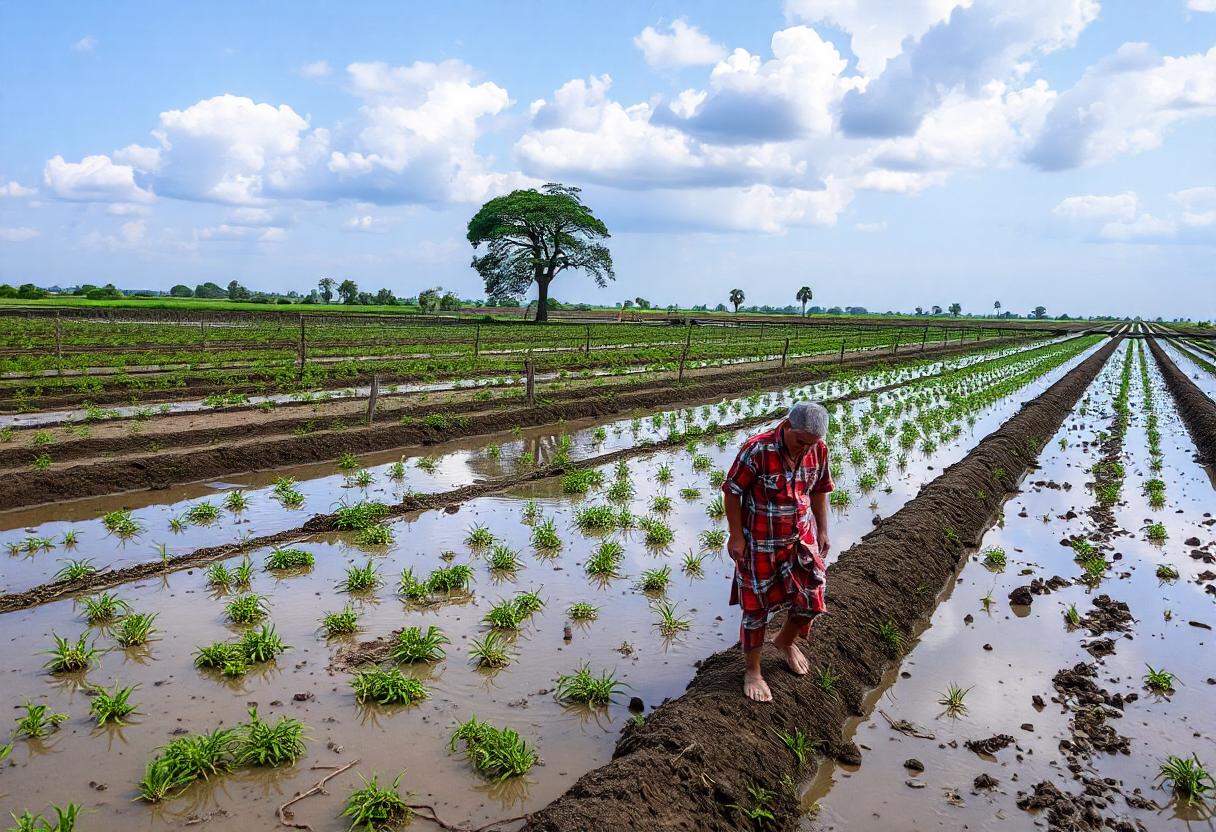
Agriculture traditionally relies heavily on water, but in response to challenges such as water scarcity, climate change, and environmental concerns, alternative approaches are being developed. These innovative methods aim to reduce water usage or adapt to environments with limited water resources. Here’s an overview of agriculture practices and technologies that operate with minimal or no conventional water use.
Dryland Farming
Dryland farming is practiced in regions with low and erratic rainfall. It involves techniques to maximize water conservation and make the most of limited precipitation. Key strategies include:
- Drought-Resistant Crops: Planting crops that are adapted to dry conditions, such as millet, sorghum, and certain varieties of legumes, can yield better results in water-scarce environments.
- Conservation Tillage: Reducing soil disturbance helps maintain moisture levels and improve soil structure. Techniques like no-till or reduced tillage prevent evaporation and erosion.
- Rainwater Harvesting: Collecting and storing rainwater during wet periods for use during dry spells can supplement natural rainfall and support crop growth.
Hydroponics
Hydroponics is a soilless growing method that uses nutrient-rich water solutions to nourish plants. This approach is highly water-efficient:
- Nutrient Film Technique (NFT): A thin film of nutrient solution continuously flows over plant roots, providing essential nutrients while minimizing water use.
- Deep Water Culture (DWC): Plants are suspended in a nutrient-rich solution with their roots submerged in the water, allowing for rapid growth and efficient water use.
- Ebb and Flow (Flood and Drain): This system periodically floods the plant roots with nutrient solution and then drains it away, reducing water consumption compared to traditional soil-based farming.
Aquaponics
Aquaponics combines aquaculture (raising fish) with hydroponics. The waste produced by fish provides nutrients for plants, and the plants help filter and clean the water for the fish:
- Closed-Loop System: Water is continuously recycled between the fish tanks and plant beds, making the system highly efficient in terms of water use.
- Symbiotic Relationship: The integration of fish and plants creates a balanced ecosystem where both components benefit each other, reducing the need for external water inputs.
Aeroponics
Aeroponics is a method where plants are grown in an air or mist environment without soil or a growing medium. The roots are exposed to a fine mist of nutrient solution:
- Misting Systems: Plants receive nutrients through misting, which is highly efficient and reduces water consumption compared to traditional irrigation methods.
- Oxygen-Rich Environment: The exposure to air allows plant roots to absorb oxygen directly, promoting faster growth and higher yields with minimal water.
Vertical Farming
Vertical farming involves growing crops in vertically stacked layers or towers, often within controlled indoor environments:
- Indoor Environments: These systems use artificial lighting and climate control, reducing the dependency on natural rainfall and optimizing water use.
- Efficient Water Use: Water is often recirculated and reused within the system, minimizing waste and ensuring that every drop is utilized effectively.
Soil Moisture Retention Techniques
Several methods are employed to improve soil moisture retention and reduce the need for frequent irrigation:
- Mulching: Applying organic or inorganic mulch on the soil surface helps retain moisture, reduce evaporation, and regulate soil temperature.
- Soil Amendments: Incorporating materials such as compost, biochar, or polymers into the soil can enhance its water-holding capacity and improve overall fertility.
Climate-Resilient Farming Practices
Adapting farming practices to cope with climate variability can help reduce reliance on water:
- Climate-Resilient Crops: Selecting crop varieties that are more tolerant to drought and heat can improve productivity in water-scarce conditions.
- Agroforestry: Integrating trees and shrubs into farming systems can enhance soil moisture retention and provide shade, reducing water evaporation and improving crop resilience.
Innovative Irrigation Technologies
While some methods aim to eliminate conventional water use, others focus on optimizing its efficiency:
- Micro-Irrigation: Techniques like drip irrigation and micro-sprinklers deliver water directly to the plant root zone, minimizing waste and increasing efficiency.
- Water-Saving Technologies: Advances in irrigation technology, such as soil moisture sensors and automated irrigation systems, help ensure that water is applied only when needed.
Conclusion
Agriculture without conventional water use encompasses a range of innovative practices and technologies designed to address water scarcity and enhance sustainability. From soilless growing systems like hydroponics and aeroponics to efficient water management techniques and climate-resilient practices, these approaches offer promising solutions for producing food in water-limited environments. As challenges related to water resources continue to grow, these methods will play an increasingly important role in ensuring food security and sustainable agricultural practices.